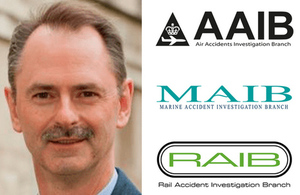Press release: UK Hydrographic Office contributes to autonomous navigation study
The UK Hydrographic Office (UKHO) has contributed to a new UK government-funded study on navigational requirements for autonomous maritime vessels.
The UKHO worked together with partner organisations L3 ASV and the Maritime and Coastguard Agency (MCA) to identify the future data requirements for autonomous shipping, and explore how navigational and wider geospatial data can be used to enable the safe navigation of smart and unmanned autonomous vessels.
The study, funded by the Department for Transport’s Transport Technology Research Innovation Grant (T-TRIG), started by exploring the characteristics of current navigational data and charts in terms of what they comprise, their structure and how they are updated. It then examined how these data sets could be repurposed to develop a prototype ‘Smart Chart’ system, incorporating data such as radio signals, regulations, tides and foundation navigational data, that can be interpreted by a computer without the use of an onboard crew.
Mark Casey, Head of Research, Innovation and Integration at the UKHO, commented: “A wealth of marine geospatial data, from bathymetry depicting the seafloor to the speed and direction of the tides, supports navigation across our oceans. For over 200 years, the UKHO has sourced, processed and supplied this information to shipping and defence to help keep mariners safe at sea. We have developed our expertise in sourcing and processing this location-based information to help others better understand the marine environment.”
“With our expertise and knowledge of data required for safe navigation, we are well placed to help our partners identify the data requirements and standards needed to support the use of autonomous vessels of the future.”
Commenting on the study, Nusrat Ghani, UK Shipping Minister, said: “As we move through the 21st century, technology will continue to transform the UK’s world-leading maritime sector. Innovations such as Smart Charts pave the way for automation and Smart Shipping, and we are keen to support British companies making the most of new technologies, giving our vibrant sector a competitive edge. Technology and innovation are a key part of our Maritime 2050 initiative, which will set a vision for the growth and success of our maritime sector over the next 30 years.”
Tim Wilkes, Product Manager, MCA, added: “Understanding the data requirements of autonomous vessels is going to be hugely important for the MCA if we are to continue to ensure the safety of navigation in UK waters to save lives and combat pollution.”
Dan Hook, Senior Director of Business Development, L3 ASV, commented: “Current navigational data and charts have been developed over centuries to be read and interpreted by humans.
“Today, and over the coming decade, more and more marine vessels will be operating unmanned, and the charts will be read by computers.”
The UKHO believes findings from the study will help to support the development of navigational requirements for autonomous vessels and will look to use its expertise in marine geospatial data to help further develop this area of shipping.
